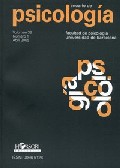The acquisition of Spanish in migrant children. The role of length of stay and family language
Abstract
Spain has recently become the largest immigrant-receiving country in the European Union. As a result, immigrant children are now entering the Spanish school system and are posing a set of challenges that were unknown until very recently. The one that probably worries teachers most is how to help their pupils achieve a level of linguistic competence that will allow them to follow teaching in a language that is often very different from their own L1. In this study, a sample of 49 immigrant boys and girls were compared to a group of 44 local pupils of the same age and school level. We analysed the progress in the knowledge of Spanish and the effect of factors such as the length of stay in the host country and the family language. The results obtained indicate that the process is long and complex, even in the case of pupils from Latin America whose L1 is Spanish.Downloads
Published
2008-01-11
Issue
Section
Articles
License
The authors who publish in this journal agree to the following terms:
Authors transfer to the publisher all copyright for the full term of protection and for all the world.
The authors can post a copy of their articles in accordance with the policy of free access to the journal.


